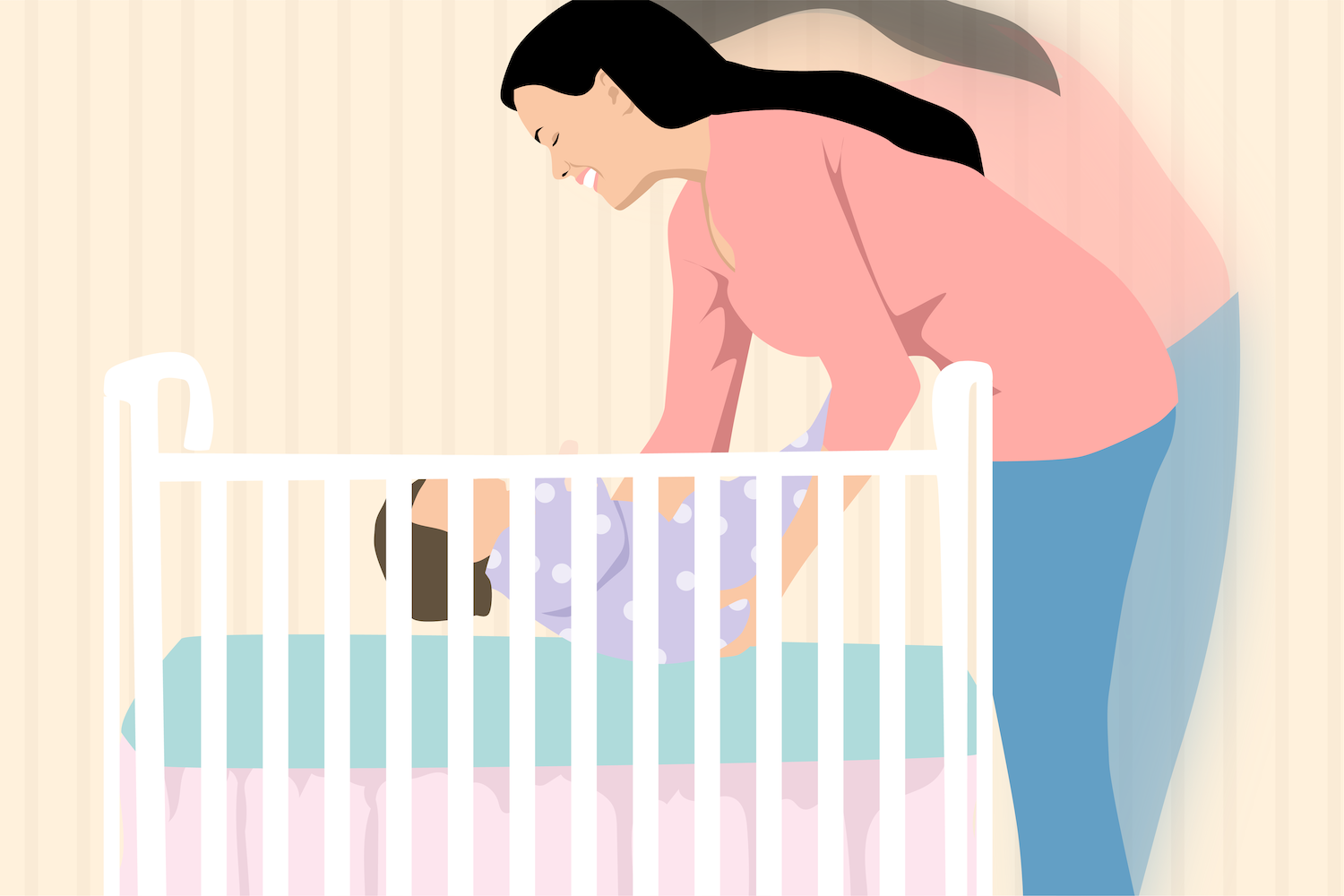
When I learned I was expecting my second child, I was ecstatic. But I was also terrified. Pregnancy and the postpartum period wreaked havoc on my mental health the first time around. I was desperate and depressed for months. For weeks, I was highly suicidal. And I lived in a fog for nearly two years after that. I missed so many moments and memories.
I tried to be more prepared for my second pregnancy. I went in with a psychiatrist, medication, and a seemingly well-thought-out plan. But a strange thing happened when I gave birth to my second. I wasn't sad, numb, or downtrodden. Instead, I was elated, my mood was elevated, and I was flooded with energy. I felt strong and invincible. My mind and body felt electric. I didn't need food or sleep, and there was no angst or apprehension. I had no idea then, but I was experiencing postpartum hypomania—a less severe form of mania—also called the "baby pinks" or postpartum euphoria.
Hours after giving birth, I was up and walking around. According to my Fitbit, I logged some 7,000 steps. Twenty-four hours after giving birth, I arrived home and began cleaning my living room with fervor and fury. I reorganized the cabinets. I alphabetized hundreds of books, Blu-rays, and DVDs. Thirteen days postpartum, I ran my first 5K. Two months later, I finished my first half marathon; my official time was two hours and 13 minutes.
And while my family and friends were impressed—they wished they had my focus, my dedication, my passion, and my desire—something was off. I didn't feel normal or "right." I became increasingly irritable and hyper-focused, and the electric high I felt—the one which (I thought) was carrying me through the newborn days and sleepless nights—was consuming me. And a few weeks later, I suffered a dark and paralyzing crash. I couldn't get up or get out of bed, at least not until I spoke with my doctor and we talked through my fears and feelings and increased my medication.
What Is Postpartum Euphoria?
"Postpartum euphoria describes the hypomanic symptoms experienced immediately after childbirth," says Benson Munyan, Ph.D., a licensed clinical psychologist and an assistant professor of psychology at the University of Central Florida. Older research published online by Cambridge University Press found about 10 percent of women exhibit hypomania in the first five days following childbirth.
Unlike postpartum depression, postpartum euphoria isn't as studied, perhaps because the mood shift is often temporary. "Most cases are transient and last for only three days," says Dana Elborno, M.D., an OB-GYN at Northwestern Medicine Central DuPage Hospital. In some cases, it can last a few weeks.
Symptoms of Postpartum Euphoria
Extreme feelings of happiness and bursts of energy aren't the only symptoms of the condition. "Moms who experience postpartum euphoria may find they become distracted with specific tasks and/or become much more talkative than normal," says Dr. Munyan. "They may struggle with racing thoughts and/or feel like they do not need to sleep." Appetite changes can also occur.
Symptoms can become severe and last longer. "If a mother develops more severe symptoms of mania, she may begin to engage in risky behavior, not appreciating the consequences of her actions, or believe that she has special powers or abilities," Lori Wasserman, M.D., FRCPC, a psychiatrist and the lead of the reproductive life stages program at Women's College Hospital in Toronto, told Global News.
If this occurs, the mother's well-being and that of her baby may be put at risk, as she may not fully realize or understand the dangers and repercussions of her behavior.
Why You Need to Treat Postpartum Euphoria
Although postpartum euphoria often doesn't last very long and can sometimes be hormonal, it's important to address since it can be indicative of mental health conditions that require treatment. "These postpartum highs can precede an episode of postpartum depression and/or may be a sign of bipolar disorder, both of which could be dangerous," says Dr. Elborno. Research has shown that women who experience postpartum highs are more likely to experience depression around six weeks.
Postpartum hypomania isn't recognized by the Diagnostic and Statistical Manual of Mental Disorders (DSM–5). That can be because postpartum euphoria hypomania and mania are referred to by the American Psychiatric Association (APA) as perinatal mood episodes often indicative of bipolar disorder.
"Bipolar disorder has two phases, the depression phase (the 'lows') and the manic phase (the 'highs')," the APA explains. "When the 'lows' and 'highs' happen at the same time, it is considered a 'mixed' episode. Bipolar illness can emerge during pregnancy or the postpartum period. Risk factors include a previous mood disorder and family history of mood disorders."
Postpartum hypomania is present in about 9 to 20 percent of those with bipolar disorder and begins within 24 hours after giving birth, according to the March of Dimes. It's often confused for "the normal joy of pregnancy." Postpartum mania is believed to occur in about .03 percent of people after giving birth.
That's why it's critical to keep your OB-GYN in the loop about any mood changes that may occur postpartum. "They can help you come up with a safety plan and ensure you get the support and care you need to get back to a clear mind," adds Dr. Elborno.
For more information about postpartum and/or perinatal mood disorders, visit Postpartum Support International or call their helpline at 1-800-944-4773.





